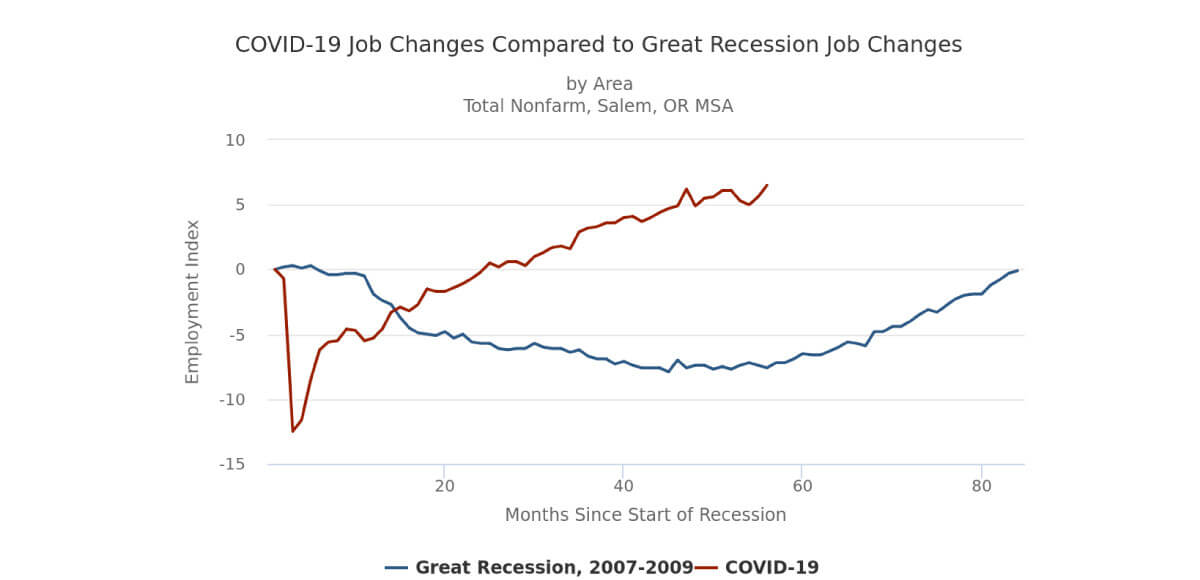The November election and its consequences

The November election produced both good news and uncertainty for Salem-area businesses.
Voters trounced Measure 118, the massive corporate tax increase and income redistribution proposal. Nearly 80% of voters said no.
“That was a ‘Hell, no,’” in the range similar to Oregonians’ rejections of sales taxes, said political scientist Jim Moore of Pacific University.
The Salem Area Chamber of Commerce was among many organizations that joined Oregon Business & Industry in fighting Measure 118.
Voters also concurred with the chamber’s opposition to Measure 117, which would have employed ranked-choice voting for many elections.
Other chamber endorsements had mixed results. Republican Reps. Ed Diehl, Kevin Mannix and Tracy Cramer were re-elected, as was Marion County Sheriff Nick Hunter. Republican challenger David Brown lost to Democratic Rep. Tom Andersen.
Chemeketa Community College’s bond issue also lost despite chamber backing.
The overall Salem economy remains in good shape, outperforming much of the state since the pandemic, according to the Oregon Employment Department. However, uncertainty arises because each presidential shift – Democrat Barack Obama to Republican Donald Trump to Democrat Joe Biden and now to Trump again – has yielded different economic and business policies.
SEDCOR President Erik Andersson feels the uncertainty as he talks with businesspeople. “I think that probably my biggest concern at this point is just really not knowing what to expect,” he said. “There are some signals that make us expect it would be more business-friendly.”
Those signals include potentially lower federal taxes.
However, Trump’s proposed trade policies and tariffs could harm area businesses, especially agricultural production and manufacturing.
“The domino effect of those can be really a challenge for businesses,” Andersson said. “We always talk about farmers here having to be internationally competitive small businesses. Hazelnut growers have to know how much hazelnuts cost to grow in Turkey.”
Turkey leads the world in hazelnut production, although the Mid-Valley dominates in the U.S. Oregon’s largest foreign market for hazelnuts is China, whom Trump wants to target with tariffs.
Salem-area companies could see their global markets shrink if countries respond with retaliatory tariffs. Meanwhile, Oregon businesses and consumers would pay more for imported goods.
“I especially think it’s going to have a negative impact on the Oregon economy, since we are a very trade-based economy,” said Willamette University law professor Norman Williams. “I’m hoping that that was a negotiating posture he’s going to use in trade negotiations, rather than something that he’s fully intent on carrying forward.”
A related question is how Trump actually will handle immigration, including deportation of undocumented immigrants
“We will be concerned how that could potentially impact workforce availability,” said Andersson of SEDCOR. “We’re at near all-time lows for unemployment for everybody.
“When new jobs are announced, it used to be 100% good news. Now it’s like, where are the workers going to come from, particularly with the ag community and the food processing community.”
The Pew Charitable Trust estimates that Oregon has 90,000 undocumented workers, many of them employed in agriculture. They make up 4.4% of the state’s labor force, slightly under the national average.
Mark McMullen, a former state economist and now vice president of policy and research at Common Sense Institute Oregon, cautioned against overemphasizing the White House influence.
“The policies of presidential administrations are always overstated in terms of their impact on the economy,” he said. “Any big policies usually take years to bear fruit.
“Of all the big policies that the current administration put in, in terms of the Inflation Reduction Act and the infrastructure and the CHIPS Act, the shovels aren’t even in the ground yet.”






